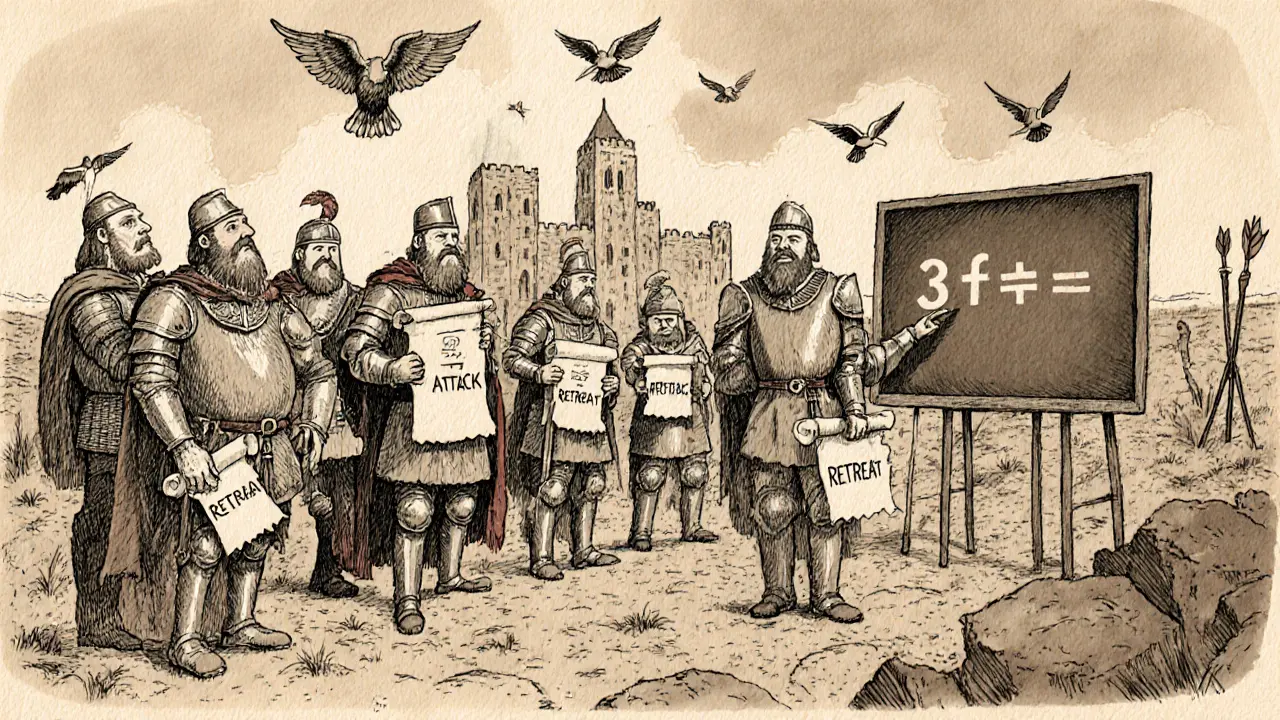Byzantine Generals Problem: How Crypto Solves Distributed Trust
When you send Bitcoin or swap tokens on Uniswap, you're trusting a network of strangers with no central boss. That’s possible because of the Byzantine Generals Problem, a theoretical puzzle about how groups of distrustful parties can agree on a single plan when some may be lying or failing. Also known as Byzantine Fault Tolerance, it’s the reason your crypto transactions don’t get hacked by bad actors inside the system. Without a solution to this, blockchains would collapse—every node could lie, double-spend, or ignore rules, and no one could know what’s real.
Real crypto networks like Bitcoin and Ethereum don’t rely on a single authority. Instead, they use blockchain consensus, a process where multiple computers validate transactions and agree on the state of the ledger. This is the practical fix for the Byzantine Generals Problem. Think of each node as a general. If most generals agree on the attack time, even if a few are traitors, the plan still works. In crypto, that’s done through proof-of-work or proof-of-stake—algorithms that make cheating expensive and detection easy.
The same logic powers distributed systems, networks where components located on different machines coordinate to achieve a common goal in DeFi platforms like Cellana or Swapr. Whether you’re staking on Stake.link or trading on Blast, your funds are safe because the system assumes some participants will be unreliable—and still works anyway. This isn’t magic. It’s math, economics, and code working together to force honesty.
That’s why you’ll find guides here on exchanges like Uniswap v3 on Blast, Cellana, and Swapr. They all depend on the same foundation: solving the Byzantine Generals Problem. Without it, no DeFi protocol, no airdrop eligibility system, no cross-chain swap could be trusted. Even compliance tools and crypto mixers like Tornado Cash rely on this model—because if the underlying trust layer fails, nothing else matters.
You won’t find a single post here that doesn’t tie back to this idea. Whether it’s a review of a new token, a guide on claiming an airdrop, or an explainer on crypto regulations, every piece assumes you understand one thing: trust in crypto isn’t given—it’s engineered. And the Byzantine Generals Problem is the blueprint.
The Byzantine Generals Problem explains how distributed systems like blockchain reach agreement when some participants may lie. Bitcoin and Ethereum solved it with economic incentives and proof-of-stake, making decentralized networks secure without central control.
Continue reading





